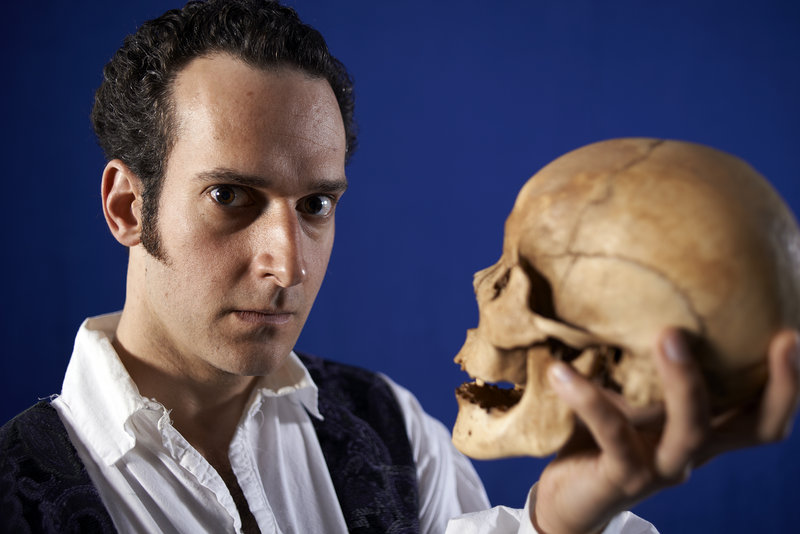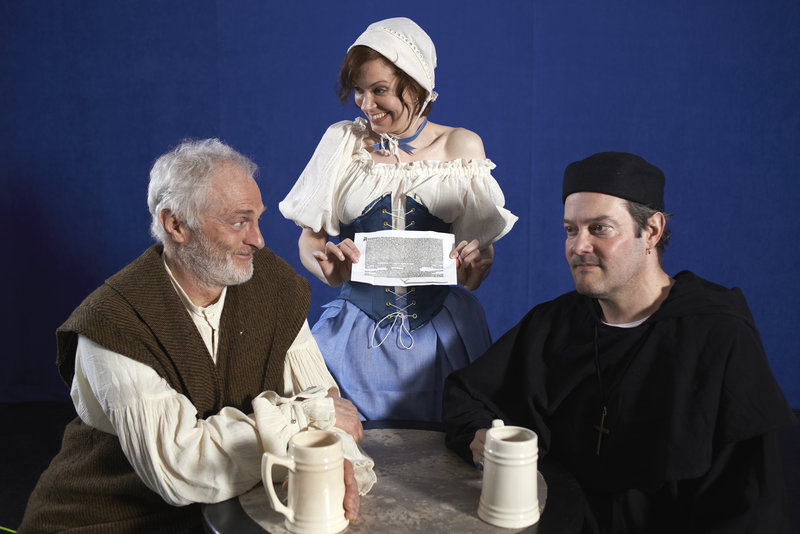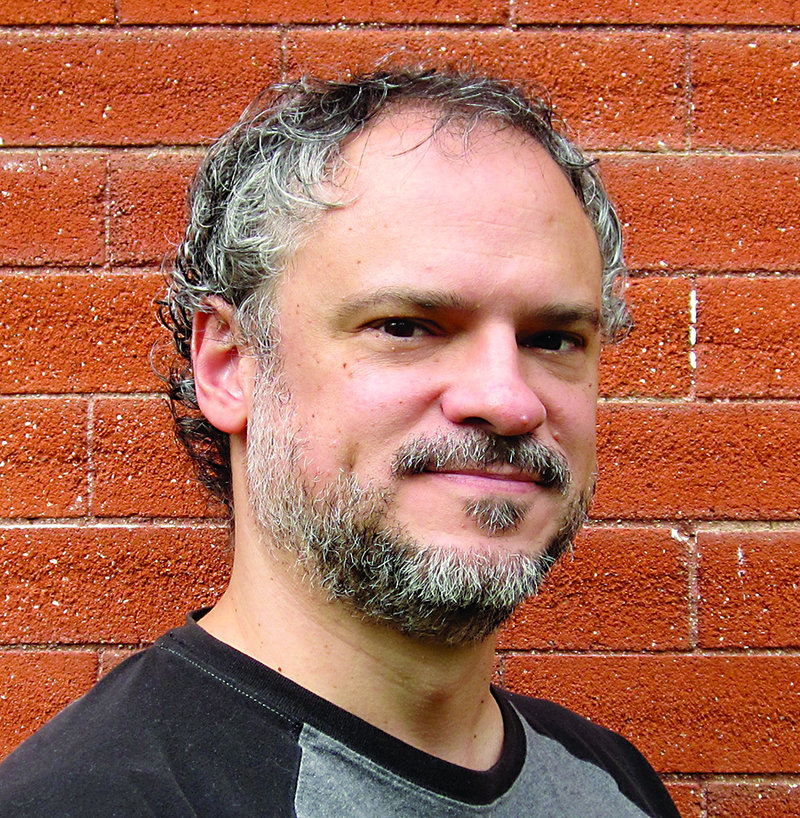David Davalos had a distinct advantage when he set out to write the play that became “Wittenberg.”
He knew how it would end before he began writing.
The witty comedy, which opens this week at Portland Stage Co. to close out the season, tells the story of a dispute between two of the most esteemed thinkers in academics: Dr. Faustus and Martin Luther. Their dispute involves how to deal with their brilliant pupil, Prince Hamlet.
As young Hamlet enters his senior year at Wittenberg University, he has yet to declare a major. Faustus wants him to study philosophy. Luther, of course, implores him to study religion.
The play ends when Hamlet is called home with the news of his father’s death. The rest of the story, as told in Shakespeare’s “Hamlet,” is well known. Davalos wrote “Wittenberg” as a sort of prequel to Shakespeare’s play.
“I ended the play where the stories that we know of these other guys begin,” said Davalos, who lives in Colorado and will be in Portland for Friday’s opening.
Ron Botting and Merry Conway co-direct the production, which is the final show of the 2012-13 performance season at Portland Stage. The play gets its final preview Thursday night, and opens Friday for a two-week run.
It has a cast of four: Michael Hammond as Dr. Faustus, Hall Hunsinger as Martin Luther, Rob McFadyen as Hamlet and Caley Milliken as the Eternal Feminine.
“Wittenberg” premiered in Philadelphia in 2008, and had its New York and overseas premieres in 2011. It’s won many awards.
An actor with a background in Shakespeare, Davalos has long been curious about the role of Wittenberg in Hamlet’s life. Shakespeare emphasized the university, but always referred to it as “Wittenberg” and not “university.”
The proper name has taken on mythical proportions in Shakespearean circles, and Davalos thought it would be fun to explore why the place was so important to Hamlet.
He got the idea while acting in “Hamlet.” Davalos played Rosencrantz, one of the prince’s courtiers. Along with his pal Guildenstern, Rosencrantz is a minor character in “Hamlet,” which meant Davalos had a lot of downtime backstage.
“I spent a lot of time with (the actor who played) Guildenstern playing cribbage, listening to the play over and over again,” he said. “Certain turns of phrase would stick out, and one of them involved the dialogue around Wittenberg.
“Hamlet was always going back to ‘Wittenberg,’ and not ‘university’ or ‘school.’ I wanted to find out why it was so important to Shakespeare to say ‘Wittenberg.’ “
Certainly, the task of writing about characters so well known was daunting. Davalos had to get each man just right or the play would not work.
“It’s quite a juggling act, to keep three bowling balls in the air. But it seems I have suckered enough people into thinking that it works,” the playwright said with a laugh, noting that “Wittenberg” has been translated into German and been produced worldwide.
Davalos did a fair amount of research for this play, but “Wittenberg” is pure imagination. It satirizes academia and college life while dropping choice references to literature and philosophy.
It’s unusual for a playwright to attend a play so long after the opening. Playwrights routinely attend productions of their plays when they are new, so they can answer questions of directors and actors and make revisions if necessary. But once a play has been published and widely produced, they generally do not make a point of seeing the show.
Davalos is an exception to that norm. He has seen about 20 productions of the play, from Alaska to Florida.
He will be in Portland this weekend, in part because he loves Maine. He has acted several times at the Public Theatre in Lewiston, but has never seen a show at Portland Stage. This seemed a perfect opportunity to check out Maine’s largest professional theater while also catching the show.
“I like going in and being surprised by what each production does, either by the interpretation or the design standpoint. I always get new information about the play that I didn’t have before,” he said.
“So it’s a selfish reason that I go to see these shows. I love to sit in the back of the house and see how it plays to the audience. I like to hear the audience laugh when they are supposed to laugh, and gasp when they are supposed to gasp. It’s very gratifying.”
Staff Writer Bob Keyes can be contacted at 791-6457 or:
bkeyes@pressherald.com
Twitter: pphbkeyes
Send questions/comments to the editors.






Success. Please wait for the page to reload. If the page does not reload within 5 seconds, please refresh the page.
Enter your email and password to access comments.
Hi, to comment on stories you must . This profile is in addition to your subscription and website login.
Already have a commenting profile? .
Invalid username/password.
Please check your email to confirm and complete your registration.
Only subscribers are eligible to post comments. Please subscribe or login first for digital access. Here’s why.
Use the form below to reset your password. When you've submitted your account email, we will send an email with a reset code.